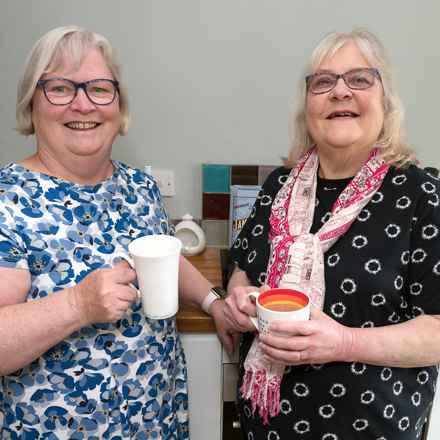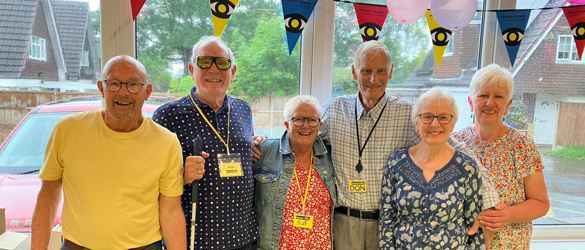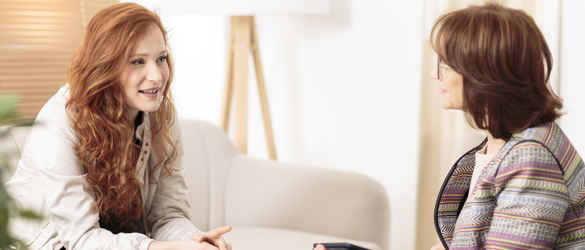“We can support each other and that has been quite marvellous”
Posted: Wednesday 17 July 2024
Two women who joined a global online support group for people with an extremely rare form of macular disease have formed a friendship after discovering they lived just a few miles apart.
Having joined the Macular Society for specific support with their sight loss, the two women were pointed towards the online group for people living with MacTel 2. Despite many people there from across the world, they were amazed to find they were separated by just a few miles, and even shared a passion for quilting.
Karen and Lynne, both from east Yorkshire, have Macular Telangiectasia type 2, known as MacTel 2. It’s a condition so rare, recent research suggests it affects 0.003% to 0.1% of people aged 40 and over.
Karen said: “What were the chances? I said I was a sewer and a quilter from East Yorkshire and lo and behold, Lynne popped up. We decided to meet and we continue to meet up. She has been to our support group meetings in Pocklington too. We talk a bit of sewing and quilting, but mostly we talk about our sight.
Supporting each other
“Because of this, I’ve been allowed to find a community of people who have the same condition as myself and then somebody who is actually local to me, so we can support each other and that has been quite marvellous. I wouldn't have had that if I hadn't phoned up and spoken to the Macular Society Helpline.”
Lynne said: “I joined the support group and people in it from America said they don’t know anyone with the condition for hundreds and hundreds of miles, and here we are just 12 miles apart!”
Lynne and Karen now run their own respective Macular Society support groups in Driffield and Pocklington.
Personal experiences
Retired chemist Karen who received her diagnosis for MacTel 2 in 2018, said: “I first needed support when I felt so isolated, and I wanted to know what my life was going to be like. I needed advice because it had changed so much from the one I was leading before. It's still completely different now but I know I am not alone.
“Knowing that support exists is absolutely massive. As human beings, by default we are not meant to be isolated, and I have now found that tribe that understands my eye condition.”
Lynne’s diagnosis took many years after she first noticed changes to her vision in 1999 and she was told she would go blind.
“I think most people think that you can't see anything and it's blackness, don't they? I know a lot better now but to be told that at the time was a shock,” she said.
It was 20 years later when she had to stop driving.
Independence
“Giving up my licence, that was the worst day since the diagnosis, realising I couldn’t drive anymore. That was completely life changing, it was a shock to my independence. It was devastating.
“It's not just your independence, it's your spontaneity. You get up in the morning and think ‘I'll do that today, I’ll do this’ but then you can’t. There won't be a bus to wherever, people might not be able to take me, so you lose the spontaneity, you can't just do these things on a whim like I used to.”
Support groups
But, in 2010 the former learning support worker attended the Macular Society conference, after which she was inspired to run her own support group.
Now the group leader of the Driffield group, Lynne said: “Lots of new group members will say, ‘you can't believe how many other people have got a form of macular disease, can you, in the same town?’ You hear that repeated over and over again.
“It’s just great to see these people make friends, and they share tips about living with sight loss and it’s brilliant.
“For me, volunteering like this keeps me busy. When I retired at the end of 2016, not really being able to see anymore, I wondered what I was going to do but my husband and I have always enjoyed volunteering.”
Looking for local support from other people with macular disease?
Find your local support group
Our support groups are for people of working age and older, and provide information, support and friendship to people with macular disease and sight loss. Find your local support group today.
Other support services
We provide free information and support to those with macular disease, along with their family and friends, to help people keep their independence.




